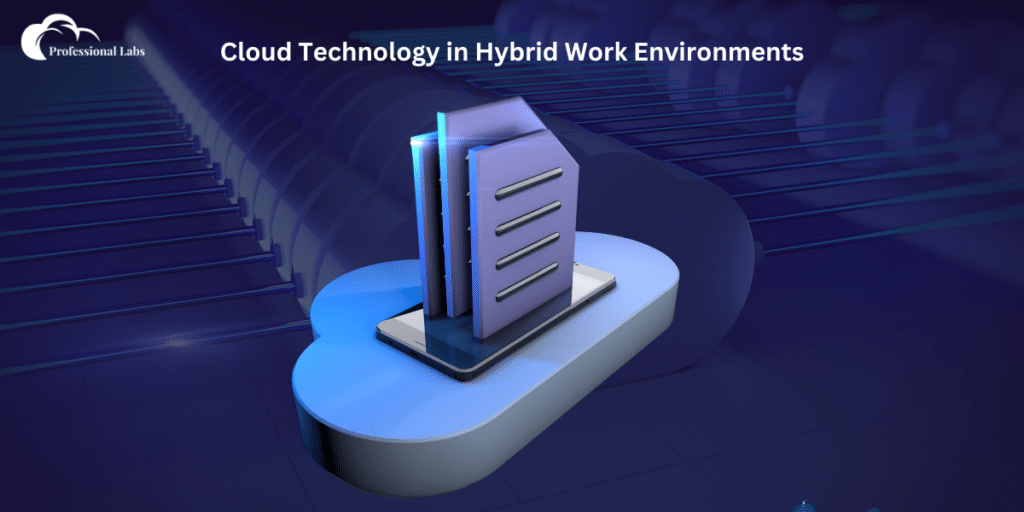- Home
- About
- Services
- Custom Software Development Services
- Managed SOC Security Service
- Azure Virtual Desktop Service
- Defender For Endpoint Technologies To Safeguard Networks
- Cloud Managed Services
- Email Security Services Provider
- Expert Citrix Consulting Services
- IT Help Desk
- PKI Consulting
- Microsoft Cloud App Security Services
- Microsoft Defender For Identity Security Services
- Market Research Services
- Modern Workplace
- Web Development Services
- Active Directory Consulting
- Azure Cloud Managed Security Services
- IT Training Services
Support and Market Research
- Partnership
- Blog
- Contact
Power of Cloud Technology in Shaping Hybrid Work Environments

Cloud technology stands at the forefront of this revolution, empowering businesses to seamlessly combine remote collaboration, enhance operational efficiency, and support cybersecurity measures. From reconsidering workplace dynamics to nurturing innovation and adaptability, the power of the cloud is reshaping the very fabric of how we work.
In this exploration, we’ll delve into the multifaceted impact of cloud computing on hybrid work environments. We’ll display how organizations are embracing the evolution of workplace needs, leveraging cloud features for enhanced efficiency, and capitalizing on the myriad benefits of hybrid cloud computing.
What is hybrid cloud computing?
It allows organizations to leverage the benefits of both public and private cloud environments while maintaining control over sensitive data and critical workloads. With a hybrid cloud approach, businesses can seamlessly scale resources based on demand, optimize costs, and ensure compliance with regulatory requirements.
Cloud technology enables employees to work from virtually anywhere with an internet connection. This flexibility not only enhances work-life balance but also enables organizations to tap into a global talent pool without geographical constraints. Additionally, cloud technology facilitates seamless collaboration among remote teams, fostering creativity and innovation regardless of physical location.
Evolution Of Workplace Needs
With widespread access to broadband internet and the omnipresence of Wi-Fi, employees now have the freedom to collaborate and access essential tools from virtually anywhere. The traditional office, once considered the sole hub of productivity, has evolved into a more fluid environment where work can seamlessly integrate into diverse aspects of life.
Organizations like prolabsit have embraced cloud technology to redefine the present-time workplace, offering amenities that back flexibility and innovation. From collaborative platforms to virtual meeting spaces, the cloud has empowered employees to work efficiently and collaboratively, regardless of their physical location.
Cloud Features For Increasing Efficiency
One of the key benefits of cloud computing is its ability to facilitate seamless participation among teams, regardless of their geographical location. Cloud communication and collaboration tools, such as file-sharing platforms and project management software, enable employees to work together in real-time, breaking down silos and fostering cross-functional collaboration. This increases connectivity not only accelerates decision-making but also promotes transparency and accountability within the organization.
Suitable Employee Benefits And Cyber Resilience
One of the leading advantages of cloud computing in suitable employee benefits is its ability to support hybrid work models. By providing employees with the flexibility to work from any location, regardless of the office, home, or remote destination, companies can offer a healthier work-life balance. This flexibility boosts employee morale, and satisfaction, and enables companies to attract and retain top talent from a diverse pool of candidates. Additionally, the scalability as well as accessibility of cloud-based tools and resources empower employees to collaborate seamlessly across geographies, fostering a culture of teamwork and innovation.
Cloud Computing Changed The Traditional Place Of Work
Cloud computing has revolutionized the traditional workplace by eliminating the need for physical infrastructure and leading remote collaboration. Gone are the days of cumbersome on-premises servers and storage systems. This shift has democratized access to resources, allowing businesses of all sizes to hold advanced technologies without hefty investments. Moreover, cloud computing promotes agility, innovation, enabling rapid deployment of applications and services to meet evolving business needs.
Cloud Services Are Used In The Place Of Work
Cloud services are occupied in various ways in the place of work, ranging from storage and collaboration to application deployment and data analytics. Popular cloud services such as Microsoft Office 365 and Google Workspace provide tools for document creation, communication, and collaboration, allowing teams to work seamlessly across locations. Moreover, cloud-based software applications and tools streamline processes and increase productivity across departments, from human resources to marketing and sales.
the power of cloud technology in shaping hybrid work environments cannot be overstated. From revolutionizing workplace dynamics to enhancing efficiency, security, and employee satisfaction, cloud-based solutions have become indispensable assets for modern organizations.
Connect us and Expand the Power of Cloud Technology Today!

